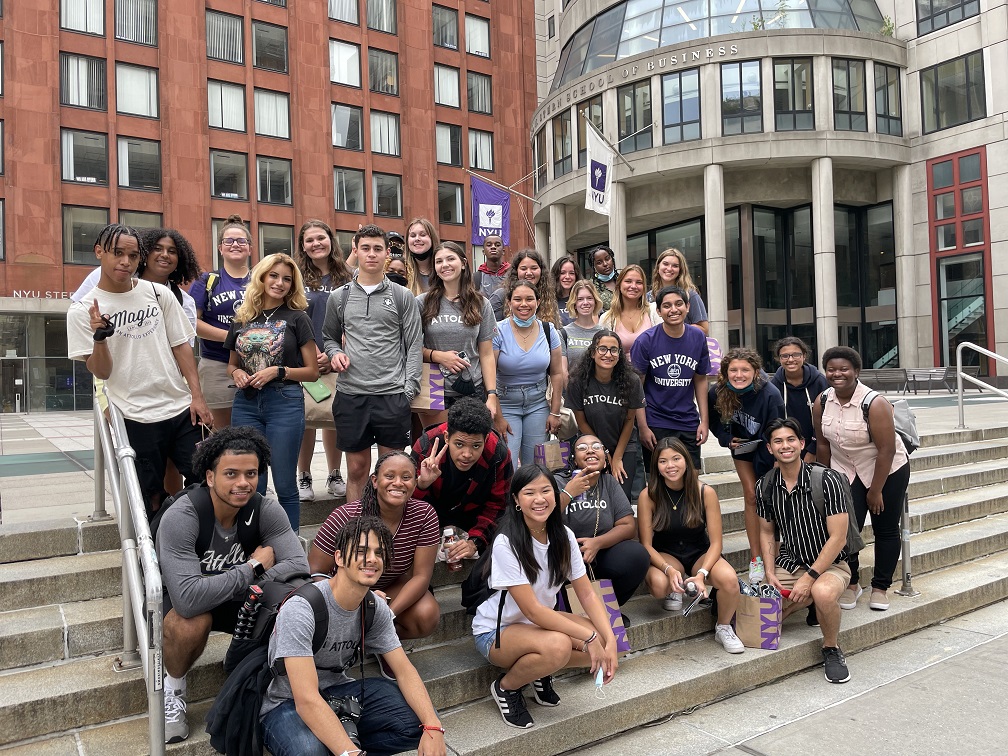
Attollo: Where Students Rise Up to Pursue Personal Growth and Excellence
Attollo may best be described as a mindset. The students in this program work hard because they want to work hard. They learn to believe that if they strive, they can reach the highest heights in the classroom and in life. And that is the magic of Attollo that is really no magic at all, but a way of thinking and believing that if you keep moving forward, there is nothing that you cannot achieve.
This is a program that inspires students to learn and succeed. Attollo has kids doing serious work and feeling good about it, too. It’s original work that we wanted to support, and we were pleased to help out in our modest way, with a small grant award. Naturally, we wanted to learn more about this work. To that end, we spoke with Attollo Executive Director Leo Silva:
Kars4Kids: Can you tell us something about your demographic?
Leo Silva: We serve predominantly students of color, low-income students, and/or first generation college students. There is also a significant amount of students who are white, middle income or affluent, and/or students whose parents have gone to college. This is intentionally designed and creates a diverse and inclusive environment for people from various perspectives to learn from each other. This also allows us to say that there is no stigma to the students who participate in the Attollo program.
Kars4Kids: You work with success-oriented students. What does it mean to be “success-oriented?”
Leo Silva: Success-oriented means that you are pursuing excellence; the key is in the phrase pursuing excellence, not being excellent. This is pursuing growth and eventually wanting to contribute back to society and something beyond yourself. This is what success-oriented truly means.
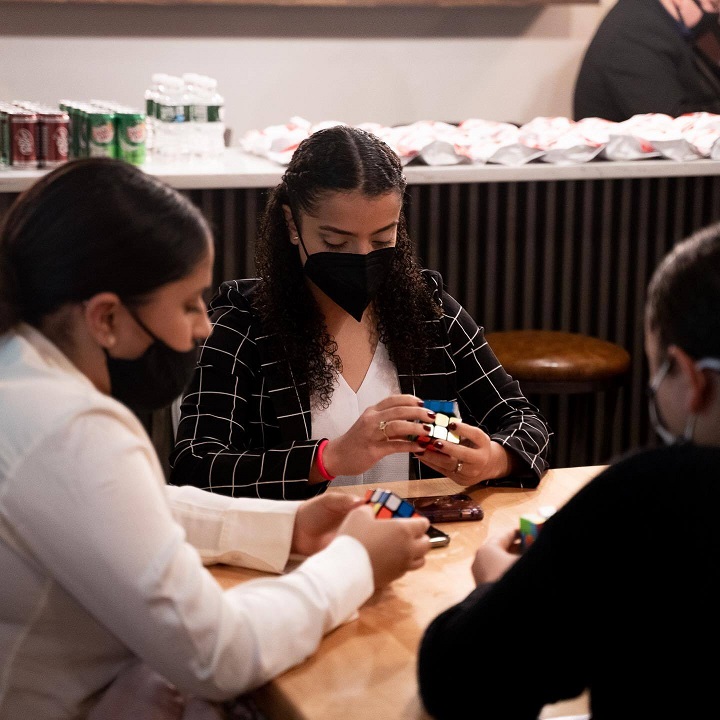
Kars4Kids: Tell us about the name of your organization, “Attollo,” and its significance.
Leo Silva: Attollo means “to rise up” in Latin. The A in Attollo also represents academic excellence, and this is a key part of our mission. It also rhymes with and goes hand in hand with Apollo. When I think of Attollo, I think of students wanting to reach higher and past their current circumstances. I think of students who are striving to elevate and level-up as well as students who want to be change agents; in order to do this they need to go through personal growth and this is exactly what Attollo represents.
Kars4Kids: What exactly is Attollo Recruit and why does it begin at 5:30 AM, when many schools are right now opting for later start times to accommodate the supposed differences in a teenager’s circadian rhythm?
Leo Silva: The truth is that we believe a junior in high school is at the ideal stage of development to start being metacognitive. Junior year also represents a year of many transitions and a time in a student’s life where they feel a sense of urgency around articulating and mapping out their future while they are also being hit with so many things from school: a challenging year academically and socially. This presents us with the perfect opportunity for students during this time of transformation to press pause, reflect, and be introspective and intentional about how they start thinking about themselves and their thoughts.
Because of the vast amount of pressure that they are feeling, their time is limited and scarce. In the past we have realized that it would be impossible to compete with the many other programs, clubs, sports, or work duties that a student might have after school. Hence, the creation of an immersive, six-week program that allows students in a short period of time to experience personal leadership development in a time frame where they have no other commitments besides sleep: Attollo Recruit. We realize the high expectation we are demanding from students in a short period of time but our data has reassured us that this is by far the best time for students to do this. We typically have between a 97-99% attendance rate at 5:30am and students are just as punctual.
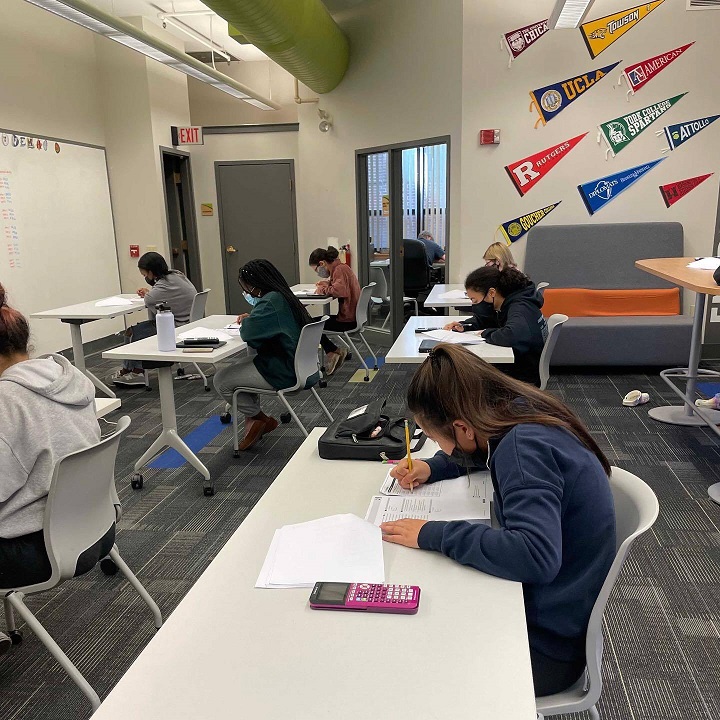
Kars4Kids: How does your SAT program work and what are its specific goals?
Leo Silva: Our SAT program is broken down into two main components. The first one is at the beginning where students are in a larger group (20-30) and our learning about the general structure of the test. The second part consists of smaller, individualized groups (3-5) led by an SAT instructor who is solely focused on their specific needs. Those groups are created based on previous academic standing such as practice tests and PSAT scores.
We have been using an SAT prep program called A-List that runs their programming in 48+ states. In addition to the group and individualized program we run, we utilize A-List’s materials. The goal is for a student to have a significant jump in 10-16 weeks; by significant we mean 100-150 points by putting in 30-60 hours of SAT prep.
Kars4Kids: You offer engineering and code. Why is it that so many youth organizations have to provide this kind of enrichment? It seems so crucial in our time, but the schools don’t seem to be keeping up. What can you tell us about your program? How is it filling in the gaps?
Leo Silva: There is a clear gap in the number of students of color and females that are exposed to STEM and because of our demographics that are predominantly female and students of color we thought it would benefit the students in our program. There is also a frictional unemployment problem that can be bridged by exposing more students to the fields of STEM; there are more jobs in STEM than there are students interested in it. Not only is there higher returns on this, but we know that students who are exposed to an interest have a higher chance of being employed in it in the future. This program runs in the spring and will be continuing again in 2022!
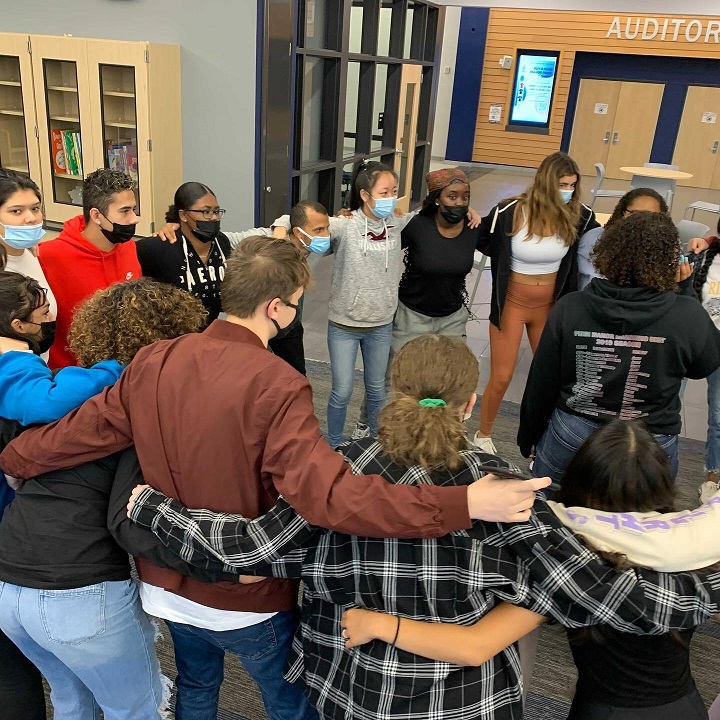
Kars4Kids: Talk about your start-up program—what skills do participants stand to gain?
Leo Silva: Our start-up program is 12 weeks long and focuses on entrepreneurship. We use the design thinking process to guide students to solve the pain points that they personally experience in their own lives. The underlying theory is that a founder should be passionate, have domain expertise or lived experience, and also be provided with the resources to tackle a problem that is close to them. Through the design thinking process students have the opportunity to come up with an idea that is feasible. They also get to present this idea to an audience.
Kars4Kids: Why offer pre-med to high school students?
Leo Silva: There is a disproportionate number of professionals of color within the medical field. Based on the demographic we serve, we know that it would benefit a lot of our students to be exposed to the medical field. Something our founder always says is “you can’t be what you can’t see.” We have partnered with PatientsRWaiting which also shares this mission of exposing students of color to the medical field, and they help us co-lead this initiative.
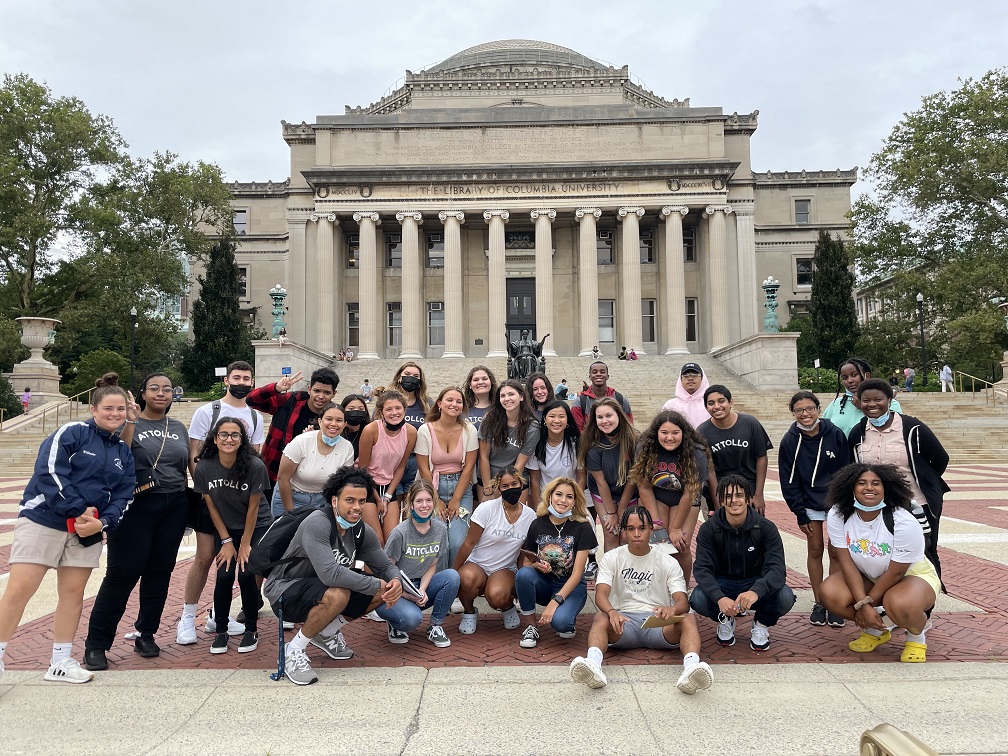
Kars4Kids: How did the pandemic affect your operations?
Leo Silva: We certainly consider ourselves a high-touch organization: a lot of value that we provide stems from services that are face to face and personalized to each student. Although we were able to pivot to Zoom, we did see a drop in engagement and retention. In fact, we were able to onboard 177 students when in the previous year pre-Covid, we were able to onboard 204. Our biggest fundraiser is also an in-person event and we had to forgo how we initially went about raising funds for that year by cancelling our biggest fundraiser. As a result, we are working to reach sustainability by diversifying our sources of revenue.
Kars4Kids: What’s next for Attollo?
Leo Silva: Our biggest growth areas lay within our alumni initiatives. We have been able to adequately serve our juniors and seniors, however there is the opportunity to support our students after they transition from high school. We also see ourselves serving more schools in Lancaster. We currently serve 10 different school districts and in the next year we will be serving 13-15. We have positioned ourselves to welcome our alumni back to this community and help them become not only contributing members of society, but contributing leaders in Lancaster. We are currently in the process of creating match programs to help students obtain gainful employment and internships over the summer.